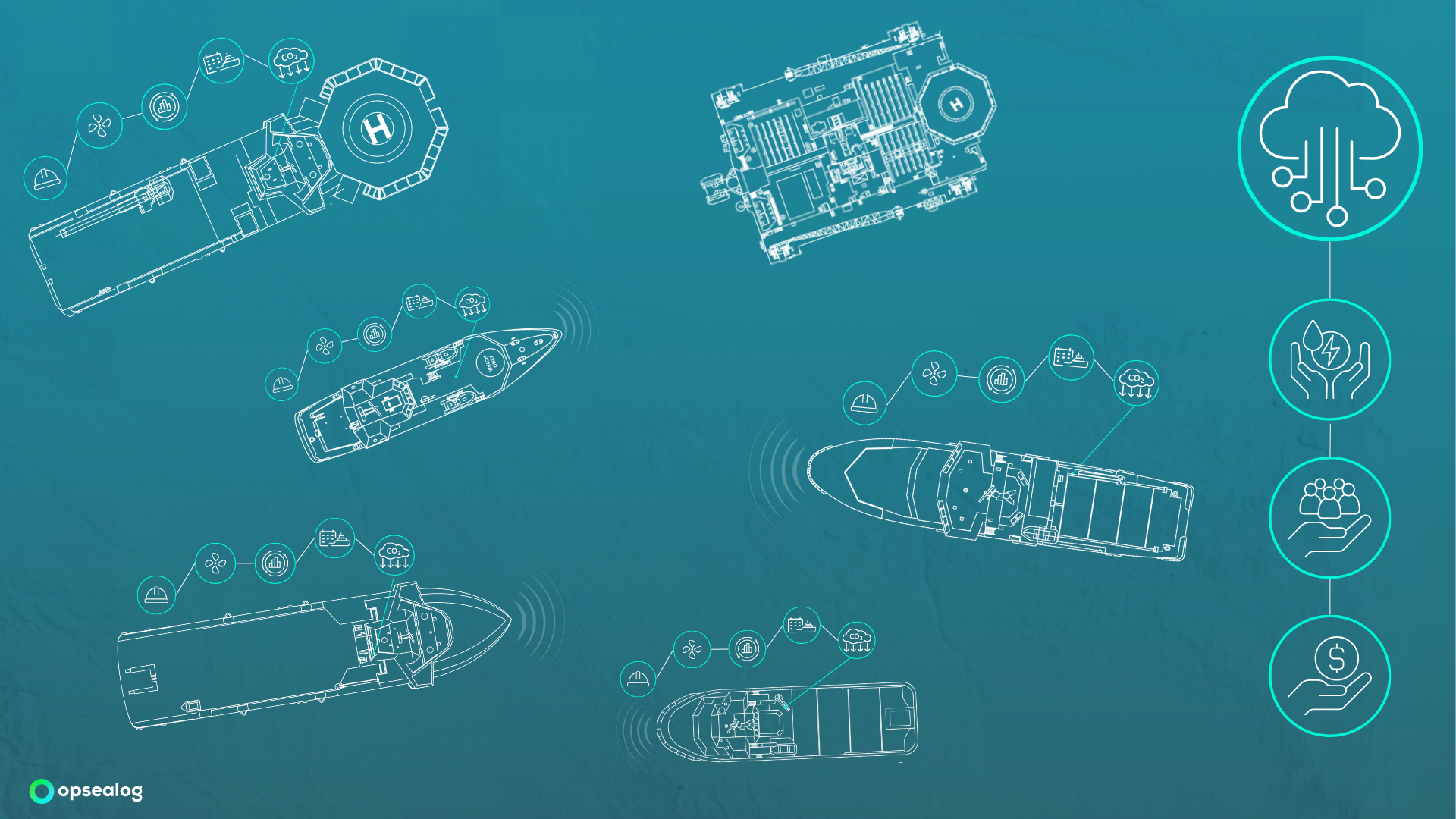The pursuit of optimization in the OSV sector has long been centered on reducing fuel consumption and, in turn, greenhouse gas emissions. However, the digital revolution is reshaping this perspective, unveiling new dimensions of operational efficiency that go beyond the traditional fuel-centric focus. Going forward, the use of data-driven insights will expand to help optimize fleet utilization and management more broadly, while supporting the respect of charter party agreements.
As the maritime industry progresses into the era of digital transformation, embracing data-driven technologies is proving to be a game-changer. Going beyond the traditional focus on fuel savings, these technologies now touch upon multiple facets of vessel efficiency, saving time and offering a wealth of additional benefits. Ship operators who recognize the wide range of benefits that data-driven vessel efficiency offers will be better positioned to navigate the complexities of modern maritime operations.
Stepping into the new era of fleet management
Data-driven solutions provide a comprehensive approach to efficient fleet management by offering insights into the real-time status and performance of each vessel in the fleet. These insights also play a pivotal role in long-term decision-making, extending beyond day-to-day operations.
In practice, charterers are already using digital systems to ensure that the right vessel type and size are assigned to the right task and to identify specific needs for the next vessel to be chartered. For shipowners, on the other hand, smart data can support their fleet’s technical availability, by helping optimize maintenance schedules – like hull cleaning and engine maintenance – to reduce associated costs and costly idle time. Data can also track the number of days a vessel was technically unavailable due to a breakdown.
Additionally, data-driven analytics can aid in identifying retrofit opportunities by evaluating the performance of existing vessels and determining when and what types of retrofits are most appropriate. This proactive approach enhances the fleet’s lifespan while optimizing performance and minimizing environmental impact.
As the debate continues around which alternative fuels will power shipping in the future, data-driven technologies enable a comprehensive evaluation of these fuels and new propulsion systems. By considering real-time data on their specific operations, in combination with market trends, operators can make informed decisions on transitioning to new and sustainable technologies, aligning their fleets with evolving industry standards and environmental goals.
Read more about how data can support the implementation of Marine biofuels.
Data is coming to the party
Charter party agreements form the backbone of commercial shipping, outlining the terms and conditions between shipowners and charterers. Efficiently managing these agreements is crucial for both parties to ensure smooth operations and avoid disputes. Data-driven technologies now play a pivotal role in supporting adherence to charter party agreements.
Data analysis can help determine if the different performance clauses defined in charter party agreements have been met. This includes factors such as fuel performance and maintenance, bringing the owner and charterer onto the same page with a common digital base.
These solutions can decipher whether a vessel’s abnormal fuel consumption is due to operational practices, or a technical or maintenance problem. As costs increase, pressure to monitor each party’s obligations and enforce contract performance is also likely to grow from all sides – which will be another driver for greater digitalization.
Managing the human element
The human element is a critical factor in vessel efficiency, and data-driven technologies are increasingly being applied to crew management as well as health and safety practices. Ensuring the well-being and optimal performance of the crew is essential for safe and efficient maritime operations. Data is emerging as an invaluable tool in this area, ensuring both operational efficiency and the well-being of seafarers. It plays a key role in guaranteeing safe manning levels on board, validating competencies, and preventing any contractual overstay.
The integration of digital systems further extends into HSE (Health, Safety, and Environment) practices. By monitoring and enforcing safety standards through real-time data, these systems provide valuable insights into drills conducted on board and facilitate the implementation of stop-work policies. This proactive approach not only ensures compliance with stringent safety regulations but also empowers maritime teams to pre-emptively address potential risks, fostering a secure and proactive work environment for the crew.
Conclusion
Additional potential uses of data in the near future are plentiful. As the process of maritime digitalization continues, embracing data-driven technologies will increasingly prove to be a prerequisite to success. Going beyond the traditional focus on fuel, these technologies open up new realms of vessel efficiency, including supporting charter party agreements, fleet management, and crew management, while incorporating maintenance and operational optimization.

